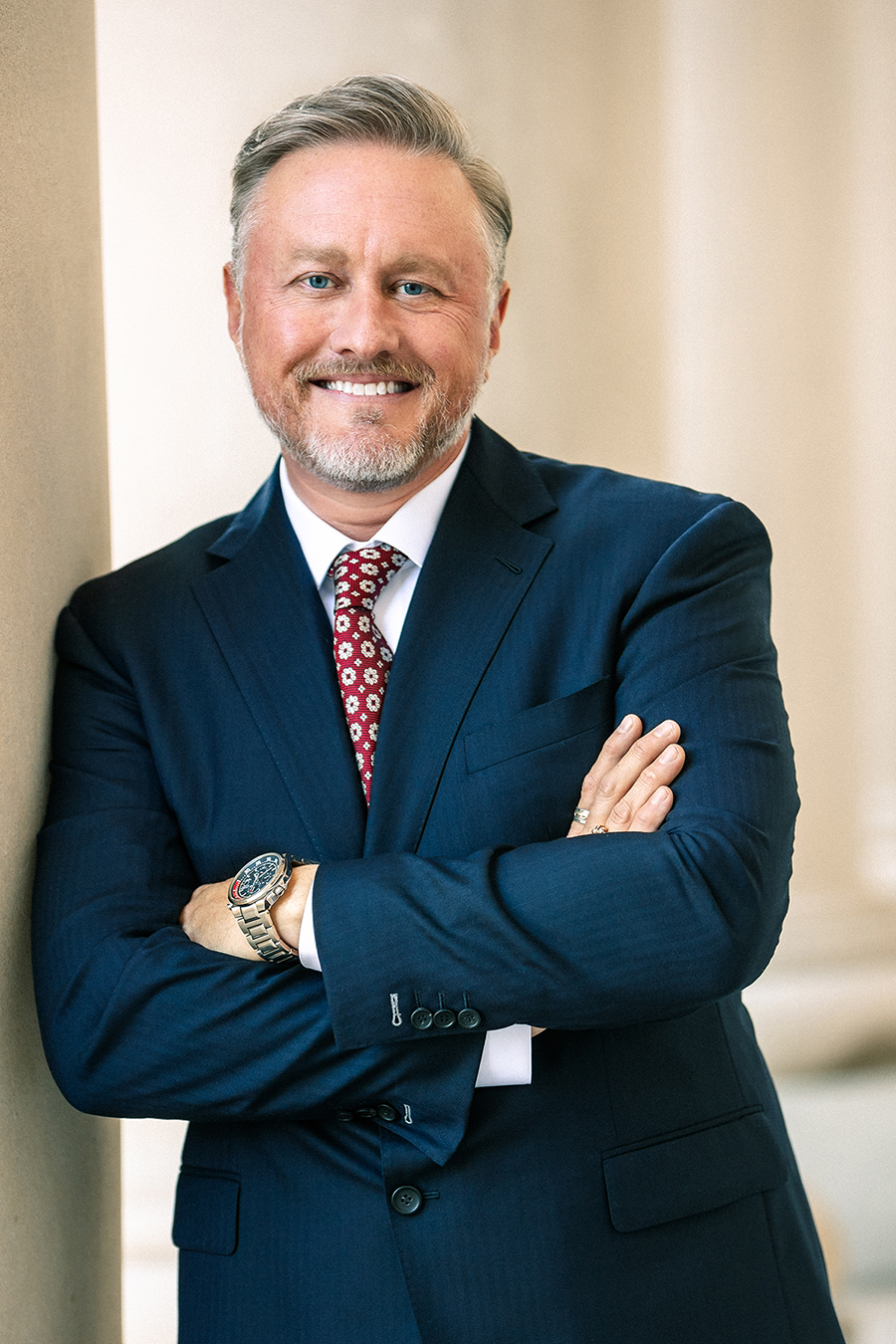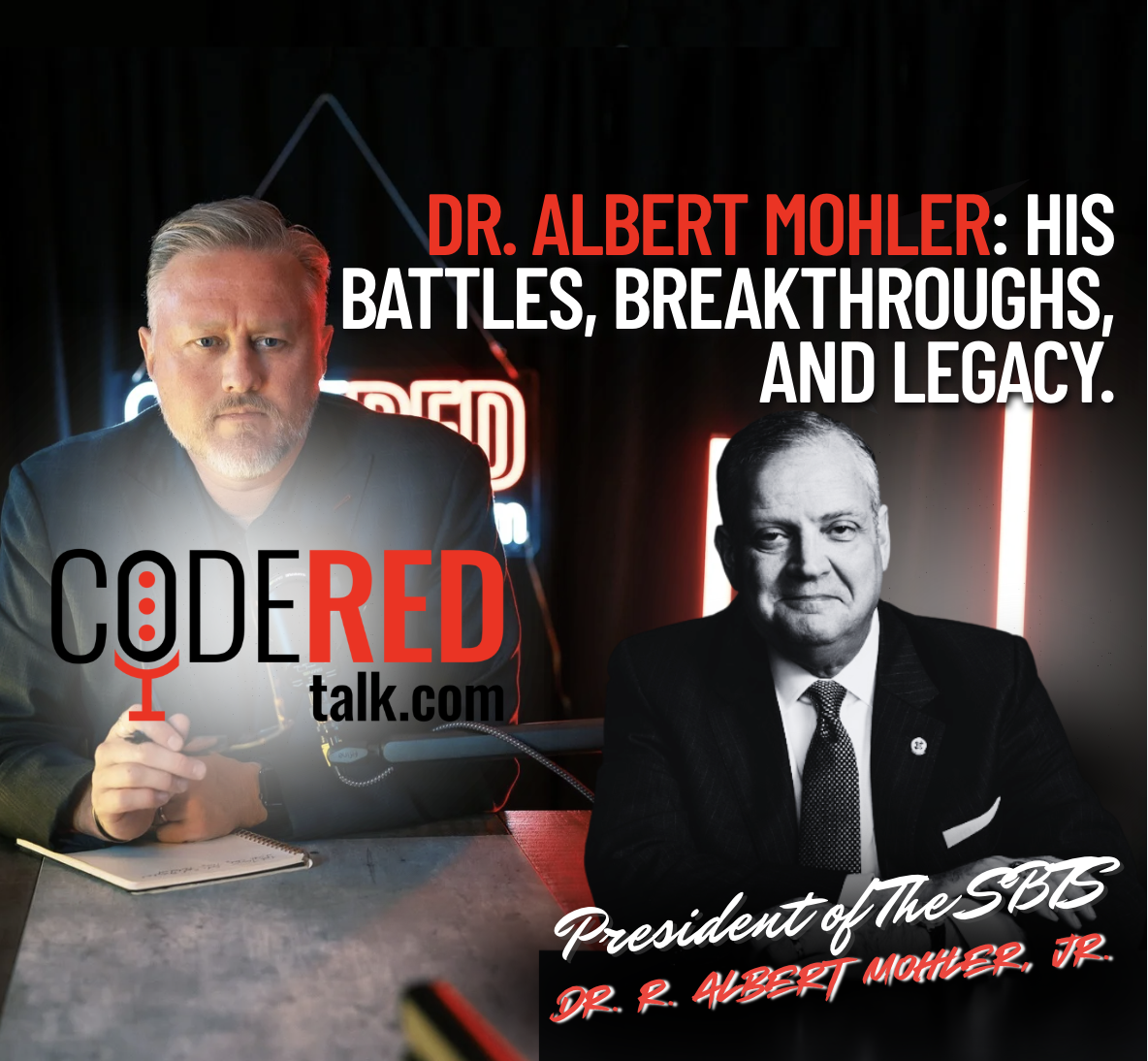Episode Transcript
[00:00:10] Speaker A: The national religious broadcasters NRB 2025 International Christian media Convention is set to take place on February 24th through the 27th in Grapevine, Texas. This annual gathering is the largest assembly of Christian communicators worldwide as President Trump prepares to make a significant statement on the future of Judea and Samaria. In less than a month, the acli, that is the American Christian Leaders for Israel Network, made up of over 3,000 Christian pastors, will hold a press conference at the upcoming NRB convention to announce the signing of a revolution affirming the Jewish people's right to the biblical heartland of Israel, Judea and Samaria. In a recent press release, Troy A. Miller, president of the nrb, stated, we recognize the undeniable biblical and historical ties to the Jewish people in this land. We reaffirm our commitment to standing with Israel against any challenge to its rightful sovereignty.
[00:01:15] Speaker B: Exciting things are happening at the Baptist University of Florida as new president, Dr. Clayton Clower, cast a bold vision to expand the student body significantly. Recently, Pastor Zach was on the campus in Graceville, Florida, and was able to see firsthand the work God is doing there. Currently, the enrollment is near 800 students, with classes being held in Central Florida, Northeast Florida and Miami. As the graceful campus continues to recover from the devastating effects of Hurricane Michael, the university continues to engage in a federal lawsuit with their insurer, Church Mutual. The university has been awarded a large financial judgment, yet Church Mutual has yet to pay what is owed.
[00:02:03] Speaker A: So, Timothy Pick, we're just talking about kind of the state of the SBC currently and the fact that our new president of the executive committee has requested, our executive director has requested $3 million off the top for the Cooperative Program.
And that money, our people traditionally believe that that goes for missions and it goes for funding our entities. And as we said earlier, we respect Dr. Jorg for the fact that he recognizes that we're in a mess as Southern Baptists currently. And I just wanted to get your take as the leader of the Conservative Baptist Network and a pastor in South Florida.
Give us some insight into how this came about and how we got in the situation we're in.
[00:02:55] Speaker C: Well, it's unfortunate for us as Southern Baptists that we're even having to have this discussion of putting into the budget $3 million that's going to be used. Really, it's going to be taken from what our cooperation has always been about.
Our cooperation at Southern Baptist has always been about missions and evangelism, theological education, that type of work. And it's sad that we're at this Point where we have to say now we need to set aside 3 million cooperative program dollars to take care of legal fees.
We know in any business there is always an expense for legal fees and things like that. But, but these are self inflicted legal fees. And what I mean by that is several years ago we waived attorney client privilege. When the Guidepost report came out and there was much happening in our Southern Baptist Convention about the need for sexual abuse reform. In the convention, there was a proposal by the current executive committee to waive attorney client privilege. And that was done.
I think. I don't want to supply motives, Zach. Like, look, I don't know a person's heart, I don't know their agenda in that sense, but I am going to say they were warned, those who, who made that proposal, that there's another alternative, that there's a way to, to do this in such a way that we're not going to put the Cooperative program at risk of bankruptcy, at risk of having to fund these things. And that was ignored. I don't know why it was ignored.
I want to again supply as generous of motives to a person as I possibly can, but it was ignored. And there were many of us who were warning. Guys like Tom Askel was warning, fellow Florida pastor, a presidential candidate at one time, Mike Stone in Georgia was warning about this. Other executive committee members were warning. We as a conservative Baptist network were warning that this is not a good approach. Even our own attorney for the Southern Baptist Convention at that time was saying, we can do this. We can care well for sexual abuse and address that appropriately without waiving attorney client privilege. And to my knowledge, I'm no legal expert, I'm just a local church pastor. But I'm under the impression as a local church pastor that once that privilege has been waived, it's waived in perpetuity, which means it can never be gotten back for the convention. Which opens us up, Zach, to some liabilities. Many Southern Baptists don't know this, but we're not only paying the legal fees on the court cases we have been sued against about, we are also, to my knowledge, paying the legal fees for Guidepost Solutions and the report they did on our behalf. So if. Go ahead.
[00:06:18] Speaker A: For those who don't know, Guidepost was the organization that the convention hired briefly, at least they were supposed to kind of represent us in ministering to abuse survivors. Is that accurate?
[00:06:37] Speaker C: Yes. Not only advise us, but they were the ones who did the report of the investigation on how widespread the sexual abuse was. See, the narrative was that sexual abuse was happening in Southern Baptist churches like it was happening in the Roman Catholic Church. And to be honest with you, the report came back, I would say, lackluster to that narrative. Now, that does not mean. I don't want any of your listeners to think that I am unsympathetic to those who have gone through the trauma of sexual abuse. I think it is a absolute heinous act for a person to impose sexual abuse on a victim. That's just.
It's completely against the character of Christ and what the act. Actions of a believer should be doing.
So Guidepost was doing this investigation and then giving recommendations to the convention on how to address this properly. Well, that report had many inaccuracies in it. There's a guy who was listed in that report who had never committed sexual abuse, and he. His name was defamed. He was fired from his church because the report came out only for that to be discovered, that they made a mistake. Well, that's a defamation lawsuit right there. I mean, this guy's lost his job. I don't know if he's lost his family, but. But he's suffered loss.
You're named as part of a public one of the largest Protestant denominations in the world.
The firm they hired is listing your name, and it's not true. Well, I think that's an injustice that was done to him, and he has a right to sue. Well, because we've waived attorney client privilege. Well, guess what?
He's suing Guidepost, and he's suing Southern Baptist Convention for that.
Southern Baptist Convention. Church members in your church, Zach. Church members in my congregation. Church members in all the Southern Baptist churches who are giving to the Cooperative Program. Undesignated receipts to the Cooperative Program through the executive committee are being asked by executive director treasurer to fund that now.
And that's unfortunate.
And I was born Southern Baptist. I was raised Southern Baptist. It breaks my heart to hear that Southern Baptists have moved so far from the mission of reaching people with the gospel and planting churches and theological training that we're having to propose at our annual meeting a budget line item to handle things like this.
It's unfortunate.
[00:09:31] Speaker A: Well, it's unfortunate what was born in the heat of revival and evangelism could die in a courtroom. And we don't want that to happen. And so, you know, it's always. It's always unwise to not trust legal counsel, but we've done that, and now we're reaping the benefits from it. Timothy, thank you.
[00:09:50] Speaker C: And Zach, Zach, to your point, I'm sorry to cut you off, but just. But just to your point on that, brother, we are pastors and we are been gifted and equipped by the Lord to handle the word.
God has also put in us, around us a council of witnesses and wisdom. And that council includes lawyers. And when a pastor who is gifted and skilled in the office of preaching and pastoral ministry tries to act like a lawyer, you're not going to get a very good defense. And when a lawyer tries to act like the pastor, you're not going to get a good defense. We should have several years ago trusted the attorneys that we had who were giving us sound biblical counsel and wisdom and legal counsel who had done so in a wonderful way for many, many years. And I think we'd be in a different spot today if we would have listened.
[00:10:51] Speaker A: Amen. I can't disagree with that. Well, thank you. Thank you for joining us. Thank you for helping us get the context of what's going on in our convention today.
[00:11:00] Speaker C: You're welcome, brother. Thank you.
[00:11:02] Speaker A: The Church Ambassador Network of Florida is gathering in tallahassee on Sunday, March 9, for the Florida Capital Project, an opportunity for Christian leaders to engage in meaningful dialogue with our government officials regarding how we can work together toward our common goals. Newly elected representatives will be presented with Bibles from the Church Ambassador Network.
[00:11:26] Speaker D: Now that we've established the importance and reliability of the Bible, I have another question. Who is God? I don't want to bite off more than I can chew with this topic, so I'm breaking it down into four episodes.
[00:11:40] Speaker E: Hello?
[00:11:40] Speaker D: Hey, Zach, I hear you're an expert on the Trinity. Can you come explain it to me in just a few minutes?
[00:11:45] Speaker E: Can I have more than a few minutes?
[00:11:47] Speaker D: No, but you can have some food.
Hey, Zach, I really appreciate you coming in today. Talk. Talk with me, too. I got us a little Mexican food.
[00:12:01] Speaker E: Excellent.
[00:12:01] Speaker D: Tostadas? Yeah, with a little salsa.
[00:12:03] Speaker C: Sure.
[00:12:04] Speaker D: All right.
Salsa there, please. I love Mexican food. I feel you can't go wrong with it. No, it's.
I could have it all the time. What's your favorite?
[00:12:16] Speaker E: I'm an enchilada man.
But tostada, you know, just a. It's just a enchilada before it's rolled up.
[00:12:23] Speaker D: Right, right, exactly. Well, as I said, you know, I really appreciate you being here.
In this series, we're talking about theology. We're trying to boil it down, put into some bite sized components. And one of the ones that I know can be difficult, but I'd really like to see what you could do with it. Is the Trinity. What is the Trinity? How do we reconcile this concept of these three distinct Father, Son and Holy Spirit, but one God? That's just hard to understand.
[00:12:54] Speaker A: Well, we've been working on it for.
[00:12:55] Speaker E: A couple of thousand years, really. And, you know, Augustine of Hippos said that if you deny the Trinity, you'll lose your soul, but if you seek to explain the Trinity, you lose your mind.
And so, you know, we can take a stab at it. We may go a little crazy in the process.
God is eternal. God is omniscient, he's omnipotent, omnipresent, and he is so massively huge in his being that he cannot fit into our finite minds in a way that we can fully grasp. Some people would say, you know, in heaven we're going to understand God fully. I don't believe we will. I think for eternity we will be seeking to understand God, or the only one who can fully comprehend God is God, and we won't be God in heaven. So. But these are. These are part of what make us human. These are part of the things that make Christians grow and give us something to look forward to in eternity, in life. Is pressing into the nature of who God is in the concept of Trinity.
People at times struggle with it because it's not a scriptural term. You know, you're not going to find Trinity in the Bible, but you see the concept there. You're not going to find tostadas in the Bible. But I love a tostada. Right.
Where did it come from historically? The early councils were wrestling with problems. They saw in the text that they did not have a word to describe.
So I'm talking In the first 300 years of church history.
They're trying to figure out these obvious truths. For example, there is one God, Israel, in the Old Testament made it abundantly, undeniably clear that they are monotheist. There's one God. Trinitarian theology doesn't deny that.
So how do you explain that there is one God? And then you see different names, different more than names, persons who are described as being God. So you see the Father, you see the Son, and you see the Holy Spirit all throughout the text. In the New Testament. In the Old Testament, you see it alluded to as well. In the plural nature of the creation narrative is the easiest example where God says, let us make man in our image.
[00:15:31] Speaker D: Right.
[00:15:32] Speaker E: So who is the plurality there?
[00:15:34] Speaker D: Who's us?
[00:15:35] Speaker E: Yeah. And how is that? How do you have both a singularity and a plurality in the same being?
And so the controversy Starts from the beginning.
And then as we go through the text, you see instances where Jesus is declaring himself to be God. He says, if you see the Father. I mean, if you see me, you've seen the Father.
He declares, when Thomas said, I'm not going to believe unless I put my hand into the wound. And when Jesus shows Thomas himself alive from the grave and lets him see those wounds in his side, Thomas falls down and declares Jesus to be my Lord and my God.
Jesus didn't correct him. Jesus said before Abraham was I am.
So all of these claims to deity, all of the attributes of deity, you see omniscience.
You see when Nathanael met Jesus, Jesus said, I saw you earlier under the fig tree. And you see all of these instances where he displays omniscience. He has power. He speaks to the winds and they obey him as it would the Father.
You see the instances where he's described as being involved in creation itself. All things were made for him and through him.
So the early Church fathers had to solve that equation, and they did so with the concept of Trinity. What do you do when you have one God who is represented in the text as eternally existing in three distinct persons? And they used that word Trinity to describe that relationship.
[00:17:26] Speaker D: Interesting. Okay, and as you talk about that, where did this happen? I mean, how did this occur? How did they come up with this?
[00:17:34] Speaker E: The early Church would come together, really, because of heresies. So you would have offshoots of orthodox Christianity that like Aryan theology, that would say that Jesus was awesome, but he was not fully divine.
And as they were gaining traction, the Church reactively, typically would come together and say, where are we at on this issue? They all agreed it's a massive, massively important issue that, as Augustine said, it can cost you your soul. You better get it right. So they would hammer out in minute detail, what are we affirming, what are we denying. So councils like Nicaea would come together.
And Nicaea was really revolving around the nature of the Son and his relationship to the Father. And then subsequent councils would hammer out, where does the Holy Spirit play into that? And so that idea of Trinity emerged out of those councils.
[00:18:41] Speaker D: So I'm going to see if I'm catching this. Tell me if I'm way off base here, but if I look at this tostada, right, it's got these different ingredients, and they make the tostada. So is God these different ingredients? And, you know, like the Father, Son, Holy Spirit, and then they're together, their God.
[00:18:58] Speaker E: So that would be what's Described as modalism.
[00:19:00] Speaker D: Okay.
[00:19:01] Speaker E: And a modalist would believe that there is one God who manifests in three distinct persons rather than internally exists. Okay, so. And that's why a lot of the illustrations like that one would fall apart and take us off the path of orthodox Christianity.
[00:19:21] Speaker D: Okay.
[00:19:23] Speaker E: Some people would use things like, well, I'm one person, but to my son I'm a father, to my wife, I'm a husband, to my dad, I'm a son.
That's also. It falls apart.
You have to be 1 and 3 simultaneously, eternally existing with the different beings able to interact with one another as two people would.
Right. But there's still one.
[00:19:49] Speaker D: Still one.
[00:19:49] Speaker E: So that the illustration falls apart. And it's a big. It's not just a minor offshoot, it's massive.
[00:19:56] Speaker D: Because another, another, I guess, illustration I've heard over time is the states of water. Right? You got the liquid water, you got the ice and you got the steam, right? They're all still the same molecules in the water, but there are three different states. So.
[00:20:10] Speaker E: But they're three different manifestations. And H2, so you've got it. You can't have them being three simultaneously as steam, water and ice, they're manifesting. So if you read some popular theology, things like the Shack was incredibly popular several years ago and it was modalistic, that illustration would have worked for describing the theology of the shack, that God shows up as different people in different ways at different times. But it breaks down when you look at the scriptures because you see stories like the baptism of Jesus by John, and you see the Son being baptized. You see the Spirit descending on him in the form of a dove, and you hear the Father speaking from heaven, this is my beloved Son, in whom I'm well pleased. So they're distinct, they're interacting. You see Jesus praying to the Father, you see him subjecting himself to the Father, you see him sending the Holy Spirit. He says, I must depart from you so that I can send the helper. When he arrives, he will empower you. So you see that kind of language, that these are distinct personalities with a distinct mission. And simultaneously there's but one God that's undeniable.
And that's why there's no illustration short of God himself that can accurately grasp that.
[00:21:44] Speaker D: I can see where trying to figure this out could drive someone. You know, kind of a mind blowing experience.
Let me try it this way. Let me try. Maybe if I try to sum it up like this. So we would say that God's one eternal being but three and three persons.
[00:22:02] Speaker E: Exactly. Father, Son and Spirit. And those three persons God has decreed and God has shown how we're to understand those three distinct persons. So he's not going to show up in a strange new way.
These are eternal. So before day one of creation, there was a father, there was a son, there was a spirit.
In a trillion years from now, when the earth has been made new, there's new heavens, new earth, there will be a father, Son and Spirit. This didn't begin in Bethlehem. It didn't begin the first day of creation. This is eternal. That's very important. The eternal nature of the Son and his relationship to the Father.
[00:22:47] Speaker D: I know we spent a lot more time on this, but I really appreciate you spending spend some time and just kind of talk them through the training with me today.
[00:22:53] Speaker E: My pleasure. Thanks for the toastada.
[00:22:55] Speaker D: Absolutely.



